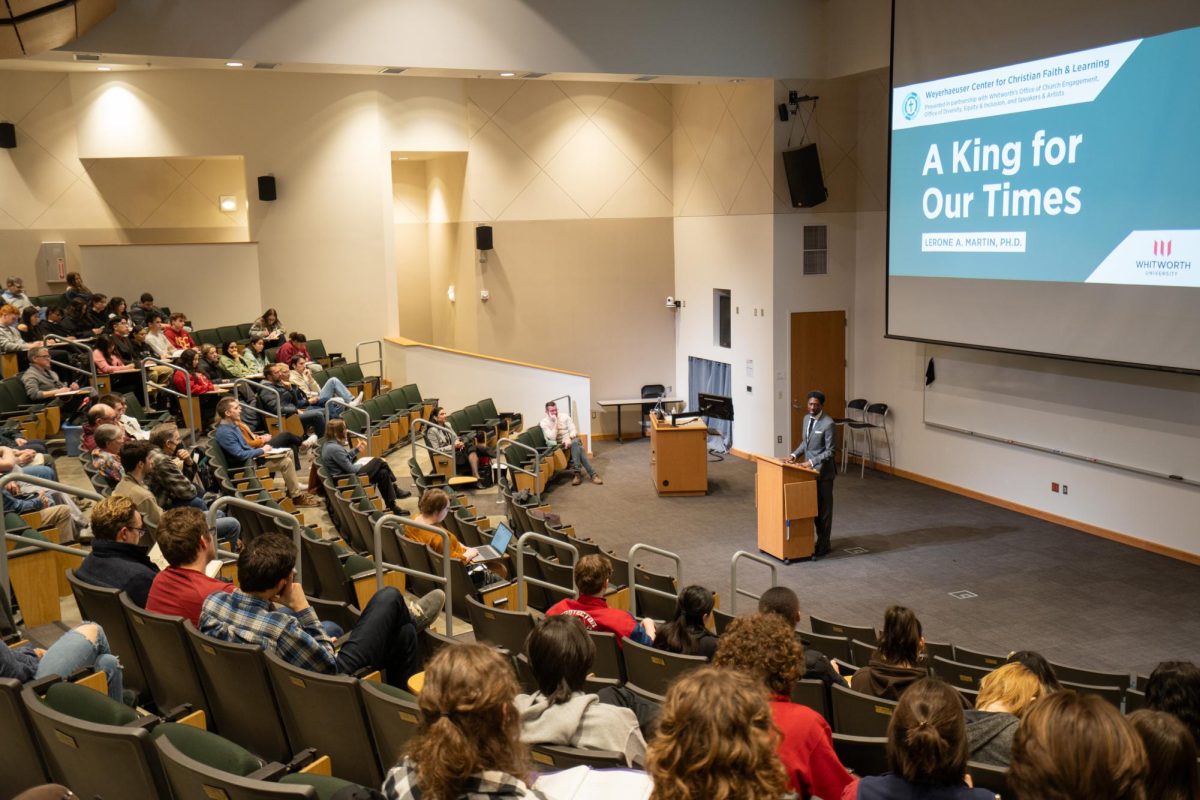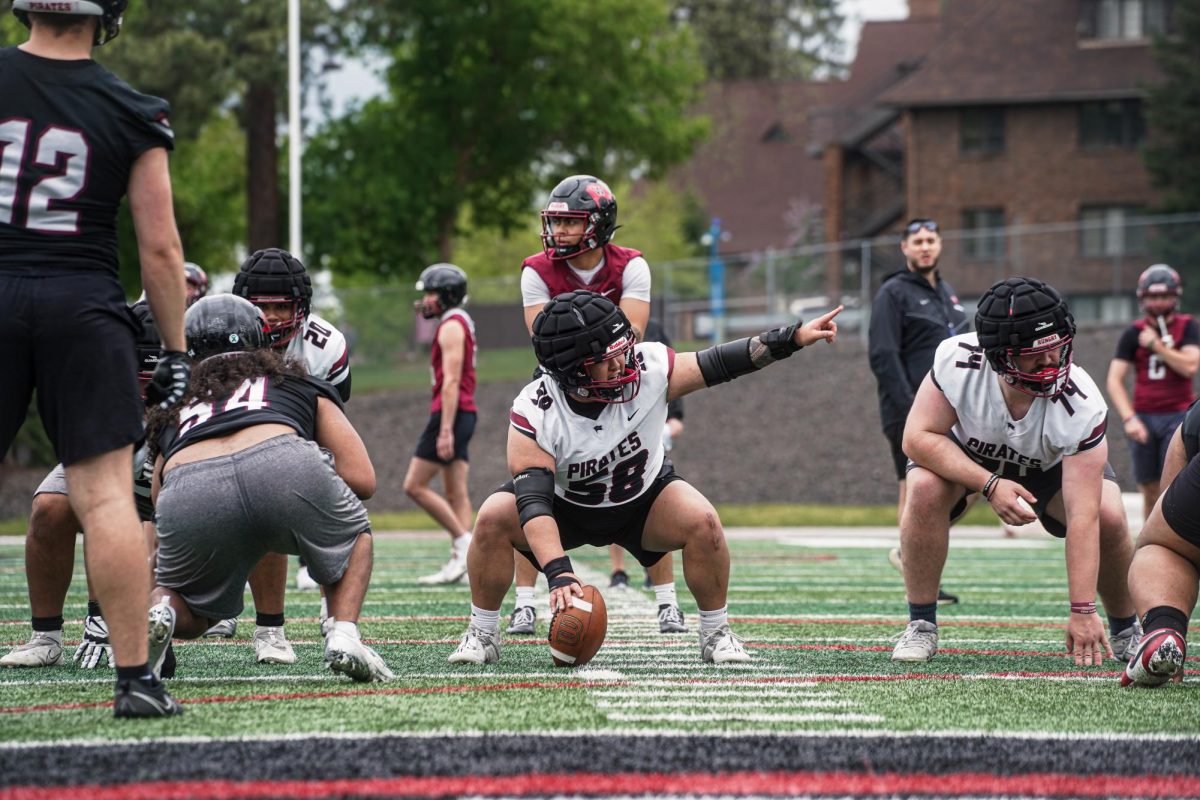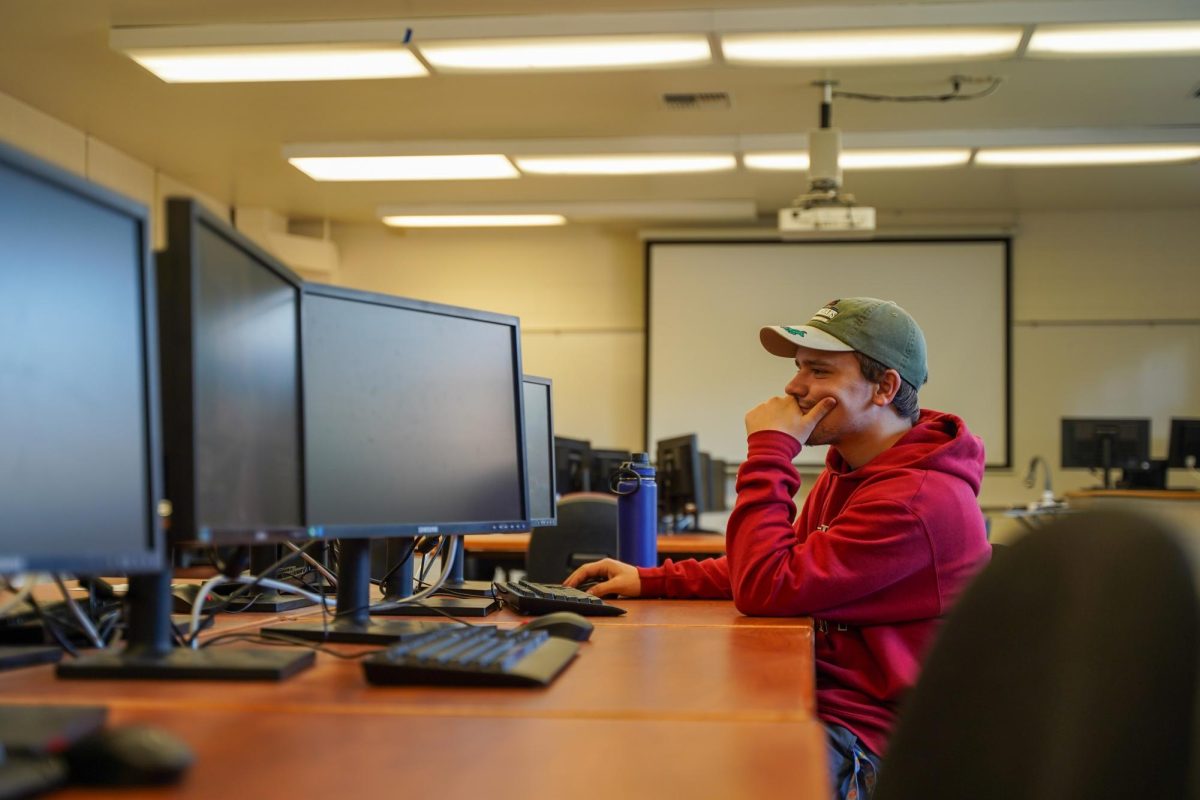Martin Luther King Jr. scholar, Lerone Martin, came to Whitworth to give the lecture “A King for Our Times” on February 26. Martin is the director of King Institute at Stanford University with the King’s Papers project which aims to publish a “comprehensive collection of King’s most significant correspondence, sermons, speeches, published writings, and unpublished manuscripts.” His talk followed the triple threat of racism, poverty and war that King was concerned with in his life. Martin ends with King’s process of addressing these concerns and a defense of King.
Martin began the talk with King’s concern of the threat of racism. Martin revealed that King was not just concerned with the effect of racism on its victims but the perpetrators. King was concerned about what racism did to the human soul as it “tarnishes the idea of the Imago Dei.” Martin backed up King’s concern by recounting the numerous encounters with racism that King experienced while still a young man. He then showed King’s view of addressing racism from both the idea of “conversion” and the law. Martin quoted King saying, “While the law may not change the hearts of men, it does change the habits of men. And when you change the habits of men, pretty soon the attitudes and the hearts will be changed.”
Martin then claimed that King was concerned about poverty and followed his claim with examples of King’s marches and speeches backing labor unions. Martin drew from a sermon of King on the parable of the rich man and Lazarus where King preaches on how wealth becomes evil when it possesses people, preventing them from seeing their brothers and sisters.
The final threat for King that Martin spoke of was war. Martin traced King’s concern with war from King’s original silence on the issue to the moment where King felt compelled to speak out against the Vietnam War. He laid out the many concerns King had around war from the cost to the human soul, desensitization, detraction from concerns within America and financial concerns. Martin gave a quote from King on war saying, “If America’s soul becomes totally poisoned, part of the autopsy must read: Vietnam.”
The next part of Martin’s talk moved to what action King took to address the threats he laid out. Rejecting acceptance and fighting with force, King puts forward nonviolent direct action. Martin lays out King’s plan in four steps. Step One: collect facts and engage in an investigation of the threat. Step Two: Educate by making sure everyone is made aware of what is happening. Step Three: Negotiation by directly talking to the people you disagree with. Step Four: Preparation to engage in a protest purifying your spirit, soul, mind and body. For King protest is made with the hope of reconciliation and performed openly.
Martin ended his talk with a call to his audience to have King as a conversation partner and to keep moving towards justice. He defended King from those who claim that King is no longer relevant and asked for everyone to read King’s words and sermons. The last words that Martin gave were following King’s examples as he quoted this saying from King, “We must keep going. If you can’t fly, then run. If you can’t run, then walk. If you can’t walk, then crawl, but whatever you do, you have to keep moving.”
Senior Tengis Murunbaatar reflected on Martin’s talk saying, “It’s just so good to receive knowledge in such a structured way from somebody who actually knows about this topic. This was well worth my time and I’m going to think about these ideas more and I’m pretty sure that I will use them in my life.”
After the talk Martin opened a Q&A answering questions around reparations, education and religion before giving the opportunity to get a copy of his book “The Gospel of J. Edgar Hoover: How the FBI Aided and Abetted the Rise of White Christian Nationalism.”











